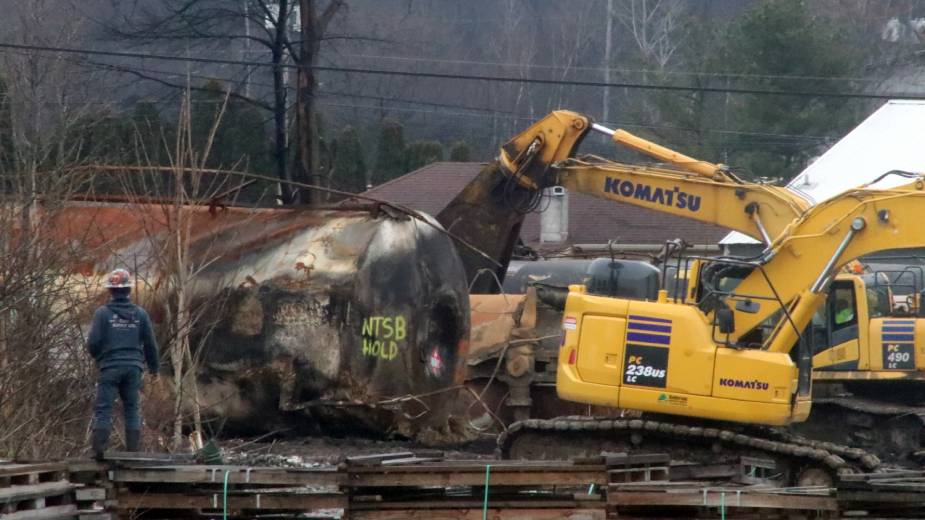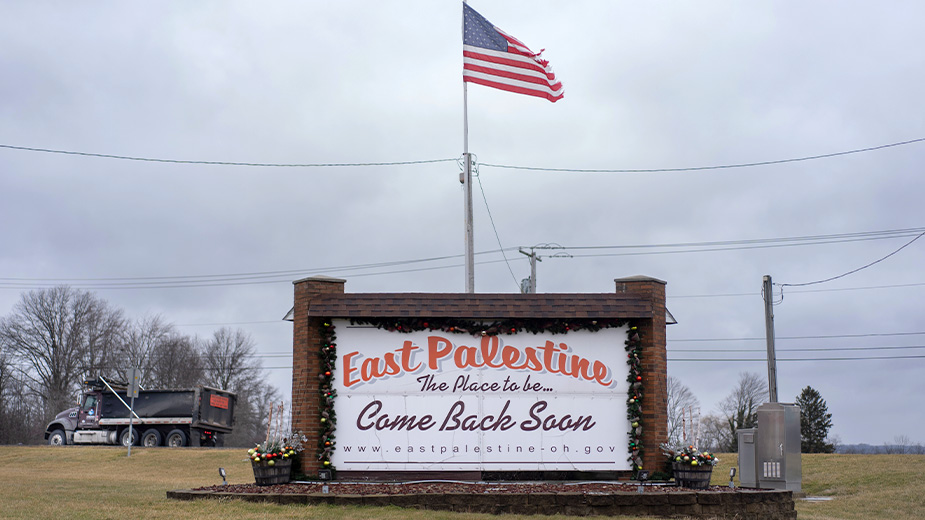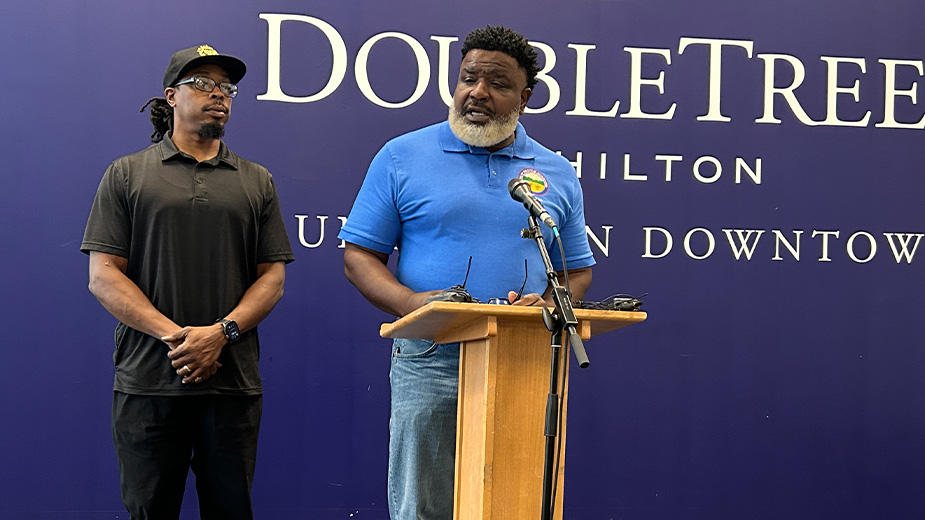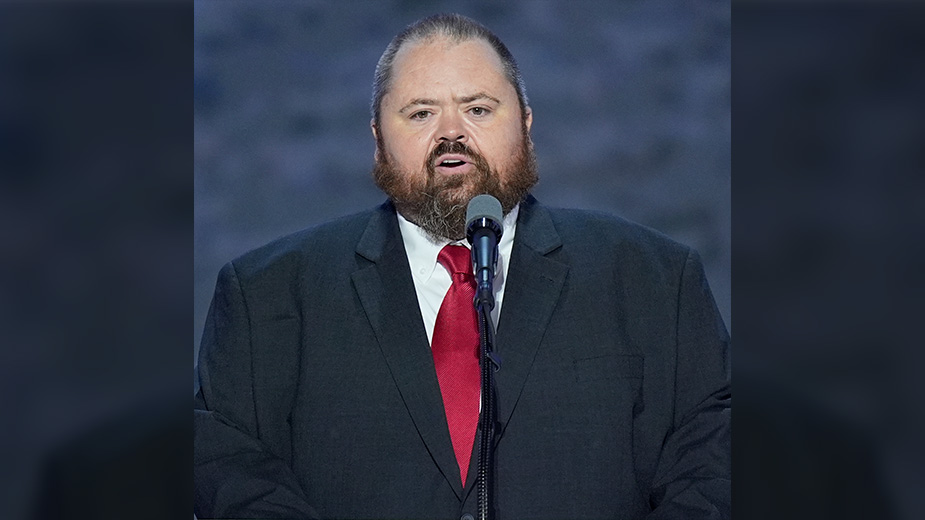NTSB Provides Some Answers; Buttigieg Details Next Steps
EAST PALESTINE, Ohio – Friday marks three weeks since a Norfolk Southern train derailed in East Palestine, and finally the residents are starting to get some answers.
“This was 100 percent preventable. … We’ve never seen an accident that wasn’t preventable,” said National Transportation Safety Board Chair Jennifer Homendy.
The NTSB released its preliminary report Thursday morning, detailing that a wheel bearing on a hopper car carrying plastic pellets reached temperatures of 253 degrees above ambient, far above Norfolk Southern’s threshold of 115 degrees above ambient. That temperature reading triggered an alarm, and the engineer, who was already slowing the train due to another train in front of it, applied the brakes further right before 38 railcars derailed. Another 12 railcars caught on fire.
The temperature reading was the third in a row that reportedly showed a rising temperature, but it was the first reading above the threshold for an alarm to stop the train.
“Roller bearings fail, but it is absolutely critical for problems to be identified and addressed early upon detection, so these are not run until failure,” Homendy said, citing a Canadian report that said wheelset roller bearings can fail catastrophically in as few as 10 to 15 miles on a train traveling at track speed.
“You cannot wait until they fail. Problems need to be identified early so something catastrophic, like this, does not occur again,” she said.
The railcar with the failing wheel bearing was car No. 23, Homendy said, which was soon followed off the tracks by rail cars 26, 27, 28 and 29 – four of the five cars carrying well over 115,000 gallons of vinyl chloride. The fifth was car 53. The vinyl chloride was carried in specialized insulated rail tankers, designed to keep the chemical cool for up to 100 minutes in the event of a fire; however, the fire burned much longer than that, into the next day.
The firefighters responding to the scene could not find the placards that detailed what hazardous materials were in the cars, Homendy said, adding these placards are made of plastic and aluminum, which burned immediately at such high temperatures.
The insulation that worked initially to help protect the cars from heat eventually hampered efforts to cool the cars. Robert J. Hall, director of the NTSB’s office of Railroad, Pipeline and Hazardous Materials, said as vinyl chloride heats, a polymerization occurs and an exothermic reaction causes the contents of the car to get hotter, which in turn makes the reaction speed up. What concerned experts at the time was that it was potentially becoming a “runaway reaction” in one of the vinyl chloride railcars and the contents of that vinyl chlorine tanker would explode.
Homendy assured those listening to the report that the NTSB had no part in making the decision for the controlled release of chemicals. That decision and the results will be part of what will be investigated by the NTSB. Safety recommendations will come at the conclusion of its investigation, which will take many more months and will include a rarely used investigative field hearing in the East Palestine area to help get to the facts.
Some of the organizations involved in the investigation – the Federal Railroad Administration and the Pipeline and Hazardous Materials Safety Administration – do have enforcement authority and can push for safety changes as the investigation unfolds, Homendy said. The investigation could take up to a year.
With the number of investigations conducted, Homendy voiced her frustrations that the safety recommendations that will be made by the NTSB at the end of the investigation have often gone unheeded in the past.
“This is a community that has been devastated,” she said. “They deserve to know what happened, how to prevent it from happening again. They deserve to have the right solutions. Often during our investigations, everyone is guessing. I saw it all over media, which was driving me nuts. Those solutions, all of the ones that I have heard of, are not the solution. So we will do a little evaluation to prove that they’re not, but I get frustrated because what happens is that everybody jumps to those solutions, and when we issue our report, we get ignored. That is frustrating. … We need action on what would prevent that from happening again.”
‘Enough With the Politics’
Homendy also was asked about the visit by former President Donald Trump on Wednesday and other politicians who have used the situation to gain political points.
“Enough with the politics on this,” she said. “Enough with the politics. I don’t understand how this has gotten so political. This is about a community that is suffering. This is not about politics. This is about addressing their needs, their concerns. So I don’t care about the politics.”
Instead, she and the NTSB care about the concerns of the community, figuring out what happened and what can be done to prevent it from happening again, she said, as well as making recommendations that could make railroad transportation of chemicals and other hazards safer as they continue to travel by rail through little communities like East Palestine.
“Our credibility rests on us, carrying out an objective thorough investigation, and that’s what we will do here,” Homendy said.
Contaminated Soil
Residents also got some answers from Gov. Mike DeWine, who announced the removal of the contaminated soil began Thursday and answered prior questions about just where some of the soil and contaminated water is going. His office reported under direction of the Ohio EPA, Norfolk Southern brought in large dump trucks and began moving contaminated soil to the U.S. Ecology Wayne Disposal, a licensed hazardous disposal facility in Michigan.
At this point, 4,832 cubic yards of soil has been excavated, and the soil underneath the tracks will be hauled away immediately to be transported to a proper disposal facility. A total of 1,715,433 gallons of contaminated liquid has also been removed from the immediate site of the derailment, with 1,133,933 gallons of the liquid hauled off-site, mostly to Texas Molecular, a hazardous waste disposal facility in Texas. A smaller amount of waste has been directed to Vickery Environmental in Vickery, Ohio.
Buttigieg Visits
At the time when the NTSB was releasing its preliminary results Thursday morning, Transportation Secretary Pete Buttigieg made a long-awaited stop in the village, detailing what the next steps will be following the train derailment, including the independent NTSB investigation and policy work that will follow.
“Having these factual findings is an important step toward being able to move on with the phase of policy-makings,” Buttigieg said, noting that while they will wait for the full report to make certain judgements, they will continue to look at ways to improve rail safety and hold people accountable.
He said he was just there for the work and not the politics.
“To any national political figures who have decided to get involved in the plight of East Palestine, I have a simple message, which is I need your help because if you’re serious about this, there is more that we could do to prevent more communities from going through this.”
Buttigieg at one point spoke directly about Trump’s visit the day before and said it would be good if he owned his administration’s policies, recognize that they did not help prevent this and help take steps to push for tougher rail regulations. Buttigieg wants more regulations regarding inspections of trains.
While railroads like Norfolk Southern continue to have policies to make cuts, Buttigieg said it is up to government to push for better safety regulations, including better notifications about hazardous materials and steps to take better care of rail workers and the rail system.
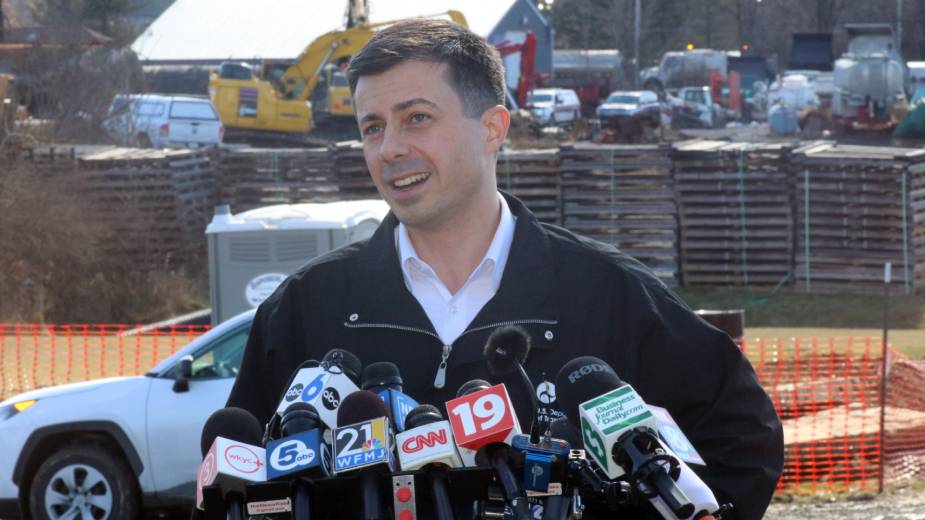
“As long as Norfolk Southern is running trains on this track, and as long as anybody is feeling the impact of this disaster, Norfolk Southern has to be there, not just this year, not just when all the press is here, but also every day,” Buttigieg said, adding Norfolk and other rail companies need to stop fighting legislators’ attempts to pass regulatory safety changes.
Buttigieg said he understands that the train was not a high-hazard flammable train, which is reserved for those carrying types of crude oil. He believes this train that created that plume possibly should be added to that list of materials carried in stronger tank cars, as well as ones with electronically monitored brakes.
Although he had no scheduled meeting with residents of the village, Buttigieg said he spoke during the day to the EPA, FEMA and state and local leaders, including village staff.
“I had a good conversation with the mayor, who is clearly very focused on this community and helping this community move forward,” Buttigieg said. “The resilience, the resolve and the decency of this community as they have gone through both this disaster’s immediate impact and the swirl of national and international and political attention that has come their way, their decency and resolve has been inspiring.”
Buttigieg has taken criticism and was questioned several times about his reasoning for not coming to East Palestine or getting involved sooner. He said it was a balancing act of allowing NTSB to play its investigative role, when to provide a show of support and taking actions to create safety regulations in the future. He admitted perhaps he should have expressed his concerns for the residents of the community sooner.
“In terms of the residents, which is what this is really about, the really striking thing to me is how they are here for each other,” Buttigieg said. “This is not a community with infinite resources. Speaking with the mayor, hearing about what he has been through and remembering the experience of being a mayor, I am really impressed with how they have been able to support one another, and they are not here for the politics. They are here to make sure this community can move forward.”
He talked about making sure there is more access for training for first responders who respond to hazardous material derailments and other similar tragedies. He suggested people should remember it is safe to visit East Palestine and should shop in area businesses. Buttigieg said the village should be getting the support of the whole country.
“This is a community full of good people who did nothing wrong,” Buttigieg said. “No one in this community asked to be in this situation. They deserve not just the full force of the federal administration and the state government being there for them, not just Norfolk Southern doing the right thing and paying for the cleanup, they deserve a different level of support, a human level of support. The country should be wrapping their arms around the people of East Palestine, not as a political football, not as an ideological flash point, not as a gotcha moment, but as thousands of human beings whose lives got upended through no fault of their own.”
Buttigieg also relayed sympathy about a related tragedy – a plane crash that killed five people, employees of CTEH, a company involved in the cleanup efforts in East Palestine.
Pictured at top: A railcar from the Feb. 3 derailment in East Palestine.
Copyright 2024 The Business Journal, Youngstown, Ohio.
